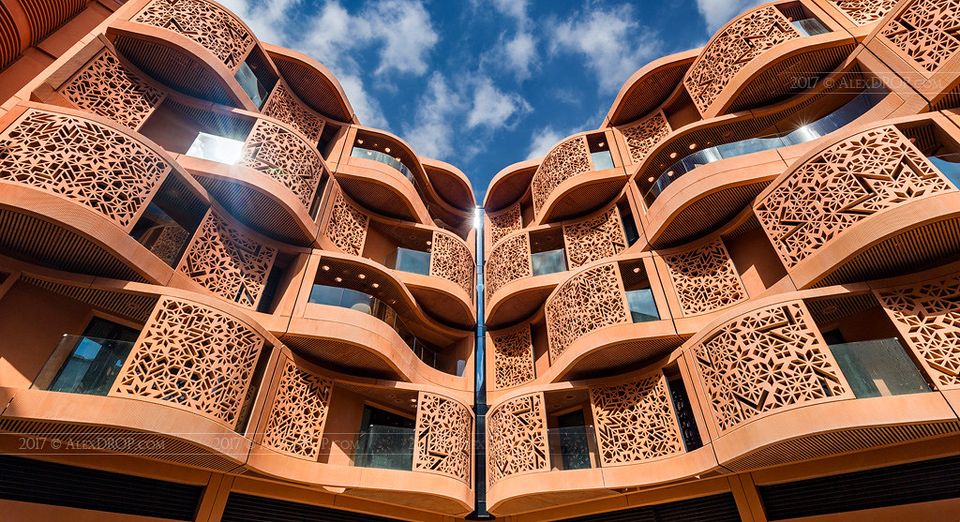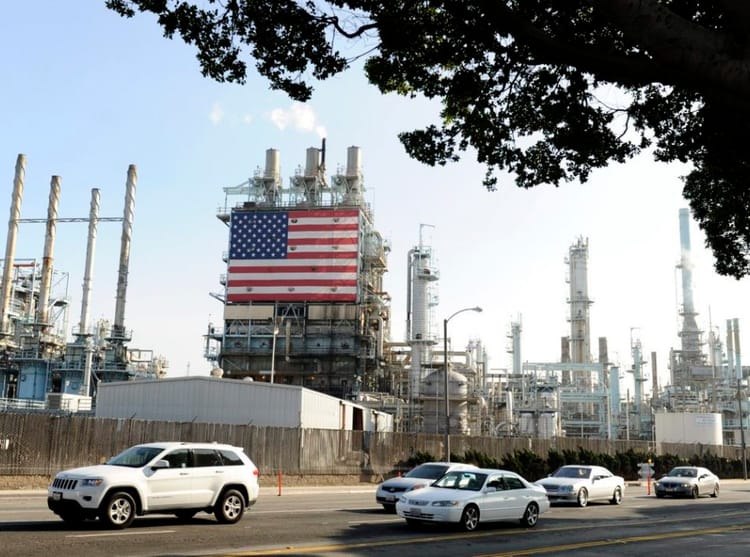COP28 and the Limits of Eco Modernism

Lately I've been looking through old emails from when I reported a lot on cleantech. It's disorienting to see press releases from summer 2023 echo the same promises people made about markets and tech back in 2006. Bigger story on this coming soon, but it's particularly stark in the case of the United Arab Emirates and its renewable energy company, Masdar. Which of course is worth taking a look at in the context of COP28 being hosted by UAE and presided over by Dr. Sultan Al Jaber, the former head (and current board chair) of Masdar, who is now the CEO of the country's national oil company, Adnoc.
Al Jaber's appointment as COP president has been something of a flashpoint—the cilantro of the climate movement as it were, with people like John Kerry, Mike Bloomberg and Bill Gates proclaiming him a terrific choice, while Senators Whitehouse and Markey, along with a long list of climate advocates, agitating for his removal from the position given the clear conflict of interest inherent to an oil CEO presiding over a climate conference. Christiana Figueres' mea culpa thrown into the mix after decades of promoting oil CEOs as climate allies has served to underscore a turning point for international climate negotiations: either continue to allow the fossil fuel industry to dictate terms on climate action or chart a new path. But it's hard to know what that new path would even be; the fossil fuel industry has been shaping and influencing not only COP but also the Intergovernmental Panel on Climate Change since their inception. The story of Masdar is quite helpful for thinking through this thorny question
The Masdar Initiative was launched in 2006 as part of Abu Dhabi's Vision 2030. As the largest oil producer in the UAE, Abu Dhabi's relationship to fossil fuel is a bit more complicated than that of Exxon or Shell. In Abu Dhabi, UAE nationals have few or no political rights, and live in what economists have described as a gilded cage made of generous economic benefits and incentives. That cage was built with oil money. And as the Arab Spring unfolded in the early 2010s and Emirati leadership began to calculate exactly when their oil reserves would run out, the need to diversify became clear.
"Emirati citizens have little interest in going against the sheikh and the royal family as that would mean putting their wealth at risk," Dr. Federico Cugurullo, assistant professor of smart and sustainable urbanism at Trinity College in Dublin, writes in his book Frankenstein Urbanism. "However, if the oil-based economy of Abu Dhabi collapsed, so would the welfare system at the basis of the Emirati gilded cage. If the latter cracked, Abu Dhabi might share the fate of countries like Libya, Syria, Egypt, Bahrain and Tunisia."
Compounding the issue for Abu Dhabi was the fact that its population was projected to grow exponentially as not only migrants seeking work, but also climate refugees, began to move to the region in droves. With limited water resources, the region would not be able to support a larger population without new approaches to both water and energy. Masdar was a key part of both economic diversification and climate adaptation. The idea was that via Masdar City—an "eco city" that would operate as a sort of "living lab" for cleantech R&D—and Masdar, the company—a renewable energy company that could commercialize some of the ideas coming out of Masdar City—Abu Dhabi would become a world-class cleantech hub, solving its energy and water problems and eventually replacing the fossil fuel industry with the cleantech industry, no revolution required. It was to be the sort of win-win-win that so-called eco modernists love, a triumph of the sort of "the markets will fix it" thinking that is a hallmark of neoliberalism. And as an added bonus, it was exactly the sort of idea that could endear Abu Dhabi to the West, unlocking billions of dollars of investment.
In its early years, Masdar—and particularly Masdar City—was the darling of the American cleantech scene. Officially launched in 2007, it was the first planned city to be designed and promoted as an "eco city." Al Jaber headlined high-level conferences and won loud approval from prominent Democrats (Markey included). Planned as a 6-square-kilometer, zero-carbon, zero-waste sustainable city of the future, Masdar delivered on the sort of cool visuals + splashy press releases that dominated the cleantech scene at the time. Vinod Khosla and John Doer gave it a thumbs up. Major international publications ran photos of its Norman Foster-designed curved buildings and futuristis personal rapid transit system. But in the early 2010s stories began piling up about Masdar falling far short of its commitments. More than one publication wondered if it was going to go the way of other planned "eco cities" and become a sort of futuristic ghost town, with the whir of empty PRT vehicles replacing the hustle and bustle you'd expect in something with "city" in its name. Only two square kilometers of Masdar City's planned six have been built to date. Emirati leadership adjusted their goals from "zero carbon" to "low carbon" in the early 2010s, and from "zero waste" to "low waste." Instead of the planned 50,000 residents, the "city" has only 6,000...and even that number—the official, but unverified, count—is hard to believe. The big partners that anchored Masdar City's early announcements—General Electric, Siemens, MIT—are still technically there, but with just a handful of employees.
It's hard to verify what happened, given the closed ranks of the Emirati leadership and state control of the media, but a few researchers have taken the time to look into the details and what they've found tells us a lot about the limits of the eco-modernist approach to solving climate, particularly around the issue of profitability. Dr. Cugurullo conducted a detailed case study of Masdar City in 2016, and updated it in his 2021 book Frankenstein Urbanism.
He writes of the Vision 2030 plans and their view of sustainability that "the adjective sustainable is used extensively to describe the type of economic development [emphasis mine] envisioned by Abu Dhabi’s policy-makers." That emphasis, Cugurullo goes on to point out, shaped how policy makers and urban planners developed Masdar City. "Since Abu Dhabi’s economy is founded on petroleum, Economic Vision 2030 states explicitly that the current economic architecture of the emirate is unsustainable," Cugurullo writes. "The document advocates immediate change, invoking an economy in which the production of oil is not forgotten, but rather accompanied by alternative business activities. On these terms, sustainability is portrayed as a diversified economy made of heterogeneous sectors acting in concert, to maintain the country’s high GDP per capita, without questioning the local lifestyle."
This is very much in line with how Al Jaber has talked about COP and the sorts of solutions he proposes to the climate crisis, which rest entirely on technology (renewable energy, hydrogen, and carbon capture) and finance (particularly funding for a just transition). Which, to be clear, are absolutely necessary. But like all good econmodernists, Al Jaber sidesteps conversations about consumption or the high-carbon lifestyles of some of the world's citizens entirely.
Several Masdar City managers and Masdar Initiative leaders spoke with Cugurullo as part of his research, and they explain how Masdar City makes money. "When companies like Siemens and Schneider sell a product which was developed and tested in Masdar City, they have to share part of the profit with the Masdar Initiative," Cugurullo writes. The percentage varies depending on the shares that the Masdar Initiative owns. "If it is a local partner from the GCC Area (Gulf Cooperation Council), Masdar will be the majority shareholder, meaning 60 per cent to 40 per cent ownership and profit," a Masdar Initiative staffer explained to Cugurullo. "If the development of a new technology is conducted with an international partner, the ownership will vary from 30 per cent to 40 per cent."
The products co-developed by the Masdar Initiative and its partners also come with intellectual property rights, a key component of Masdar's approach to profitability.
In return, Masdar doesn't just offer office space and a real-live city within which to test products, it also helps companies market the products they develop there. Two major annual events—the World Future Energy Summit and the European Future Energy Forum, both organized by the Masdar Initiative—are part of that effort. But the promotion works both ways. At this year's World Future Energy Summit, for example, both Bill Gates and Michael Bloomberg talked about Al Jaber being a great pick for COP28 president. Those lines were the only ones out of their presentations that got wide play in the media and on social media, thanks to Masdar's PR firm, Edelman.
But despite all of the hype around Masdar City, and the clear potential for profit, the project stands at only about a third complete. Why? Because the products and the IP—the profit—are the goal, not the eco initiatives. Historically, whenever it becomes to difficult or expensive for Masdar to achieve an environmental goal, the goal is simply walked back. It's no longer a "zero carbon" city, for example, but a "low carbon" city, with "low carbon" being defined by a system that is unique to the UAE and not shared publicly.
"Abu Dhabi’s eco-city project exists to support the implementation of Vision 2030 by means of strategic partnerships with cleantech companies," Cugurullo writes in his book. "Without these partnerships there is no reason for Masdar City to exist, and therefore there is no reason to plan its construction. As a leading planner from F+P explained in an interview, ‘Masdar City is a demand-responsive development’ which does not go ahead until there are companies ready to move in."
Further, Cugurullo's research shows that Emirati leadership prioritizes the goals of Masdar's corporate tenants over the sustainability goals laid out in the master plan. Tenants like Siemens, for example, which built a 20,000 square-meter office in Masdar, can use their own architects and do more or less what they like, and plans are adjusted accordingly. The city was originally designed to be car-free for example, but that idea got chucked out when some tenants' employees wanted to drive to work.
"The sky is not the limit. The business is the limit," Cugurullo writes. "As long as the Masdar Initiative sees profit in an experimental technology, its size and shape do not matter. What is deemed profitable gets built."
From a business perspective, this makes perfect sense. It keeps tenants happy, money flowing in, and avoids UAE leadership from fronting costs that won't be covered by profit. In the context of climate solutions, however, it's worrisome. If arresting the climate emergency is profitable, great! But if the profitability of climate solutions must come before action, if the lack of clear profit potential becomes an obstacle to taking appropriate steps, it risks not only setting the world up for more emergencies but also eroding a whole lot more profit potential in the long term. Once again, for the people in the back: the timeline of climate change doesn't map neatly to how much of the world has grown accustomed to thinking about either politics or the economy. A refusal to grapple with that relatively simple fact dooms us all to a grim sort of groundhog day, with executives cycling in and out of the idea that they can get rich off of addressing ecological collapse.
I think we can all understand why Kerry, Bloomberg, Gates et al want fossil fuel executives to be part of the solution. What's less clear is how any of them can believe, based on all available evidence, that fossil fuel executives will take the sorts of actions necessary. In the case of Al Jaber, it's not a hypothetical discussion, we know exactly what his approach to climate leads to, and negotiators from all ovr the world will see it when they land in Abu Dhabi: a 1/3-complete, mostly empty "eco city of the future" that's moderately profitable but not addressing any of today's pressing climate problems.
This week's newsletter is sponsored by Generation180, a nonprofit working to inspire and equip people to take action on clean energy.

This Week's Climate Must-Reads
- Ecuador Votes to Keep Yasuní Oil in the Ground in Historic Referendum - Excellent analysis of the long and hard-fought win for environmentalists in Ecuador, from Angélica María Bernal and Joshua Holst in NACLA
- The Investment Climate - If you, like me, have historically found it difficult to read about climate finance without your eyes glazing over and your head hurting, I cannot recommend the Polycrisis, a project from Albert Pinto and Kate Mackenzie, in partnership with Phenomenal World. Every single piece helps me understand wtf is going on in the realm of climate finance, and this week's installment—a look at why it's so hard to unlock funding for climate mitigation and adaptation in less developed countries—is no exception.
- Rich countries "trap" poor nations into relying on fossil fuels - Relatedly, this story, by Kaamil Ahmed in The Guardian, about Global South countries being trapped into fossil fuel development as a way to both pay off debt and pay for climate adaptation is spot-on and reminds me A LOT of what we saw in Guyana.
- "I'm not the guilty one": The water protector facing jail time for trying to stop a pipeline - Nina Lakhani's series on the global crackdown on environmentalists continues with the story of Mylene Vialard, a Line 3 protestor on trial this week.
- Boston Review: On Solidarity - Hard to think of a better question for climate folks to be thinking about than the one underpinning the forthcoming issue of the Boston Review, led by organizer and political theorist Mie Inouye: What does solidarity mean, and how can movements build enough of it to change society?
Hi there,
Here's a little treat for those of you who bother to read to the end. We have a new website officially launching on Tuesday. But being an anxious sort of person I made it live already so I could make sure it works. I haven't even finished uploading everything to it yet, and by Tues it will also be home to our cross-border series on the criminalization of climate protest, "The Real Free Speech Threat," but if you're curious you could sneak peek it here. On top of pulling together ALL the reporting we've been doing in one place that is (hopefully) a lot easier to navigate, we're making all background documents and primary reporting open to all. Please feel free to share your thoughts! Although maybe wait until Tuesday when I'm done fixing all the mistakes I already know about?
Thanks!
Amy





